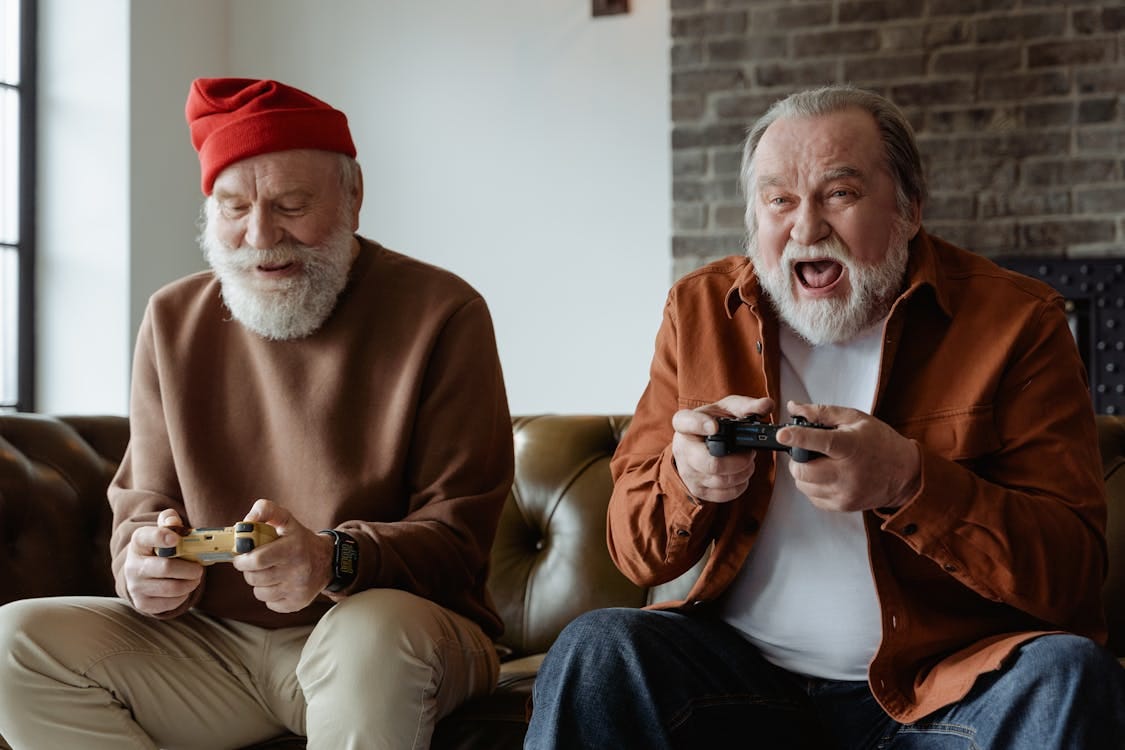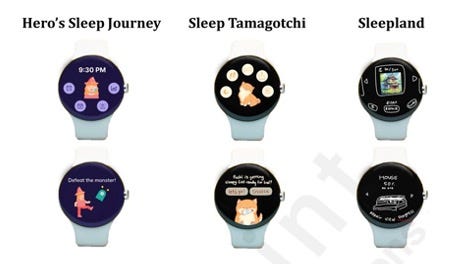Video games in research (Aug. 2024)
Lucky issue #13 is a short listicle of happenings in the world of gaming research
Welcome to lucky Issue #13 of the newly minted section of JOMT! I’m calling this series LFG: Learning from Gaming, distinguishing it from the less science-y posts I write. Like last month, I’ve got another round-up of research published in the last month or so.
Hello JOMT Reader!
Surprisingly, a lot can happen in a month in the world of gaming research. I can’t possibly cover everything that has happened, but I’ve gathered three of the most interesting studies for you!
TL;DR
Most studies agree that playing games is good for you as an elderly person, as it can help improve brain function, keep your thinking flexible, and better your mental health.
We’re obsessed with finding the ONE THING™, whether it is the Unified Field Theory or the Ring of Power. This study attempts to unify the four existing classification systems to rule them all.
I am guilty of sacrificing sleep time to play games. The researchers of this study wanted to see if they could develop a smartwatch-based game that would help people be better with their sleeping habits and behaviours.
Let’s all be Gamer Grandmas and Grandpas
Link to article: https://www.mdpi.com/2076-3425/14/7/731
Title: Video Gaming in Older People: What Are the Implications for Cognitive Functions?
I don’t know about you, but I plan on playing video games until I can no longer hold onto a controller or move my fingers across a keyboard and mouse. Ultimately, that may work out in my favour as this review concludes that playing games as an elderly person may be beneficial for brain function.
Studies have shown that playing video games can improve brain function, including flexibility of thinking, as well as mental health. Reaction times, memory, and attention were also shown to benefit from video game playing. Interactive games like Wii Fit showed benefits for those with mild cognitive deficits.
It wasn’t all benefits though, as several studies reported no differences between elderly who played video games and those who received conventional treatments like physiotherapy. One study found that walking was just as beneficial as exercise-based video games. Finally, playing Crazy Taxi did not improve any of the measured brain functions, although it did seem to improve depressive moods.
Many more studies with much larger populations will need to be conducted to determine the types of games that might benefit an elderly person. But for now, Keep Calm and Game On™ because it might just help you.
One classification to rule them all
Link to article: https://www.sciencedirect.com/science/article/pii/S1071581924000983#b6
Title: Uncovering the theoretical basis of user types: An empirical analysis and critical discussion of user typologies in research on tailored gameful design
Simplifications and classifications are important for us to understand the world around us and make decisions quickly. On the flip side, oversimplifications and misclassifications can be harmful especially as it relates to people. But we keep doing it anyway, in an effort to understand ourselves.
Gaming is already the biggest industry in the entertainment sector so understanding its population, the gamers, is of paramount importance. Trying to classify gamers by the games they play or what motivates them to play led to the creation of four classification systems that are used most often: Bartle’s typology, Yee’s typology, the BrainHex typology, and the Hexad typology.
The authors weren’t happy with four incomplete typologies, so they tried to forge the Unified Theory of Gamer Types™. Surprisingly, they were able to boil these typologies down to five main factors:
Socialization: Gamers who are motivated to play for social reasons, like keeping in touch with friends or teaming up with other players fall into this category. Gamers who have a desire to help other players also fit into this category.
Escapism: Gamers who are curious and like discovering things to help them be immersed in a game fall into this category.
Achievement: Everyone loves to accomplish something and gamers in this category are no different. They like overcoming challenges either for themselves (it could be a skills-based technical challenge or surviving through a frightening moment) or over others (like in first-person shooter or fighting games).
Reward Pursuit: Similar to achievement but much more focused on in-game rewards like better items and gear, or optimizing characters and load outs.
Independence: Gamers who thrive when they can act freely and make choices without constraints fall into this category.
As with all classification systems, I think it’s important to keep in mind that they aren’t meant to box anybody in. Instead, they are tools to help us get on the same page when talking about gamers and why they interact with the games they play.
Gamifying sleep
Link to article: https://preprints.jmir.org/preprint/64063
Title: Game On for Zzz’s: The Role of Relevance in Shaping Perceptions of Sleep Hygiene Games Among University Students
I would be lying to you if I said that gaming didn’t affect my sleep. Many of us juggle work, life, and study, and try to fit in gaming where we can and where it makes sense. I often cut into sleep time to get a gaming session in. But sleep is very important for our health and the authors of this study wanted to see if they could use games to improve sleep health.
To do that, the authors recruited 43 university students and developed three different smartwatch-based games that were designed to improve sleep health.
Hero’s Sleep Journey: This game encouraged participants to sleep so that their character could gain the health needed to fight monsters throughout the day. Poor sleep and sleep habits meant less health for those fights. Other actions that supported sleep health, like exercising or walking, rewarded participants with ways to customize their character’s appearance and abilities.
Sleep Tamagotchi: This game was all about raising a virtual pet a la the craze of the late 1990s. Healthy practices throughout the day, including getting a good night’s sleep, helped the virtual pet survive longer. I’m pretty sure if I played this game now, it would not survive a day.
Sleepland: This game rewarded good sleep habits with ways to customize the player’s village and buildings. The concept is similar to Hero’s Sleep Journey, but instead of battling monsters, participants were improving their settlements.
The researchers evaluated whether participants would use the app again and whether the games supported healthy sleep habits. Hero’s Sleep Journey and Sleep Tamagotchi came out on top as a game that participants would play again and that supported healthy sleep habits, respectively.
Would I play a game like this to help me sleep better? Probably not. But what might be cool is if some element of this was incorporated as a standard for all games. Imagine if every time you visited an inn in Final Fantasy, you were prompted to take a short break for in-game rewards, if your game time was longer than 2 hours? Or maybe there’s a future where you are rewarded with additional customization options for your favourite shooter game, if you remember to take a break after 90 minutes of playing?
If you liked what you read, please consider giving this post a like and sharing it with your community! Also, huge thanks to you for the support you are showing by reading, commenting, and interacting with me through these posts! Imposter syndrome hits fairly often so your energy and support are very much appreciated.







Those gamer categories are interesting and would make for a great spider chart. However, I'd say they define motivations to play certain games rather than the type of gamer. I play Phasmaphobia for socialisation, but I play GTA for the independence.